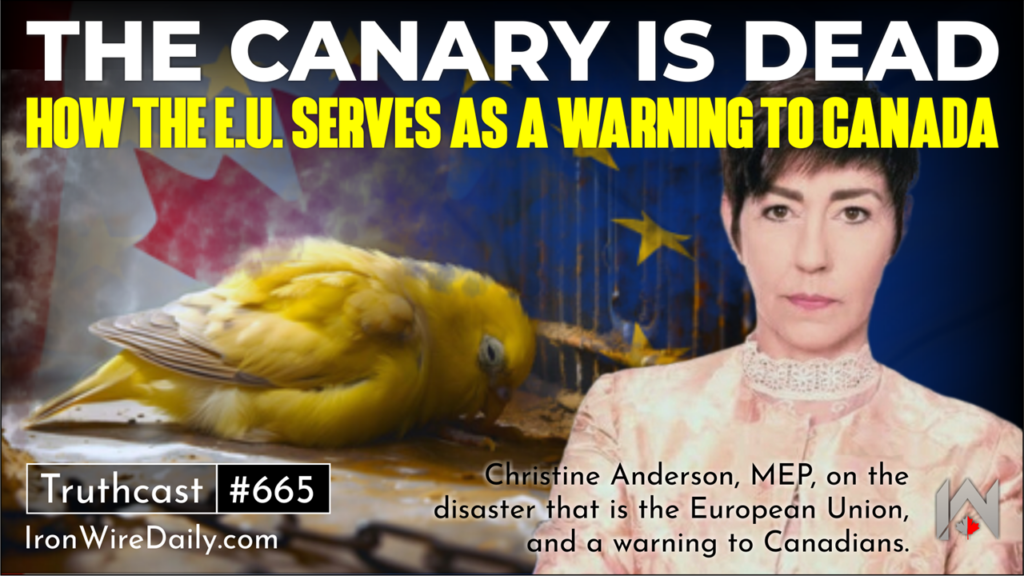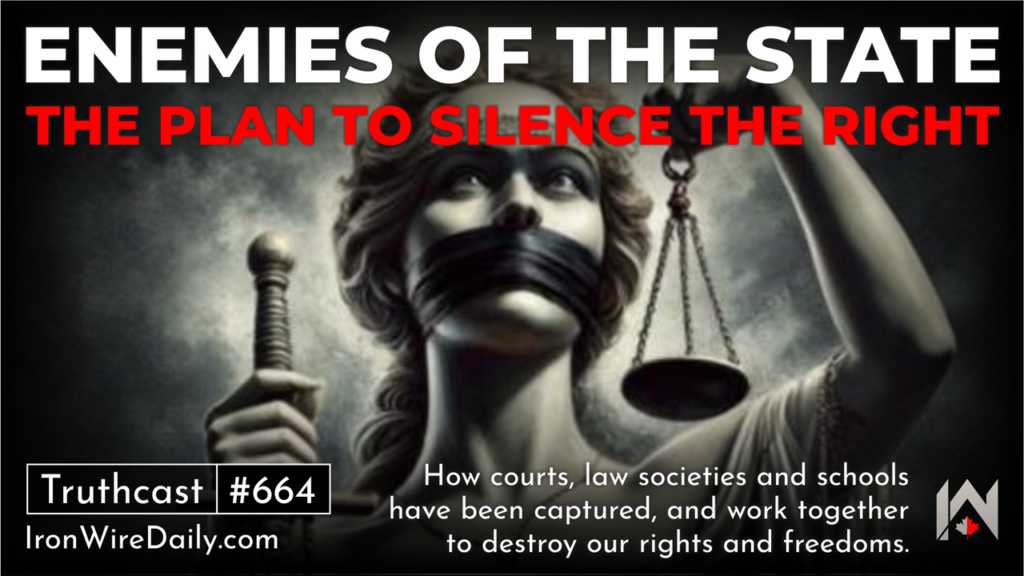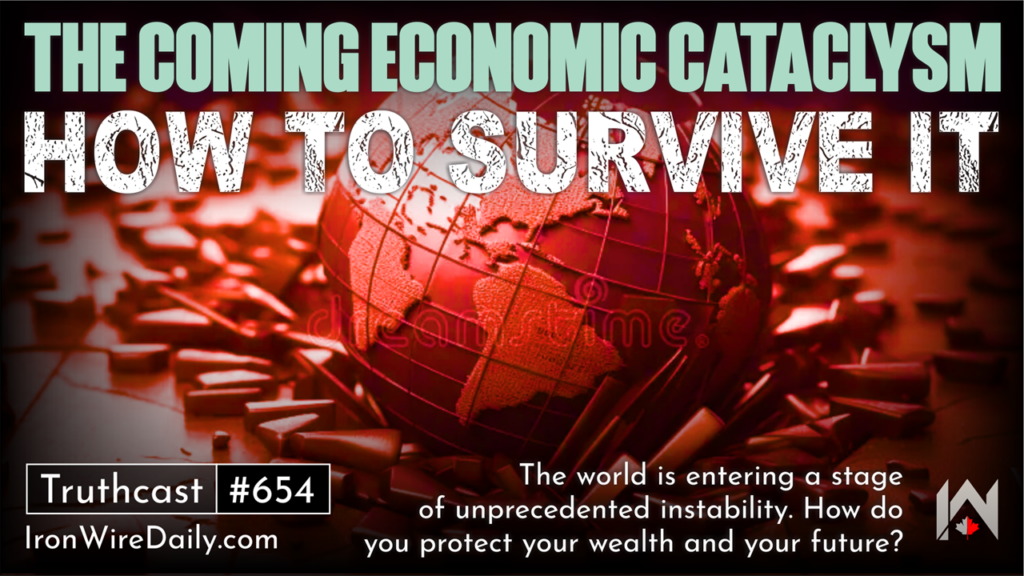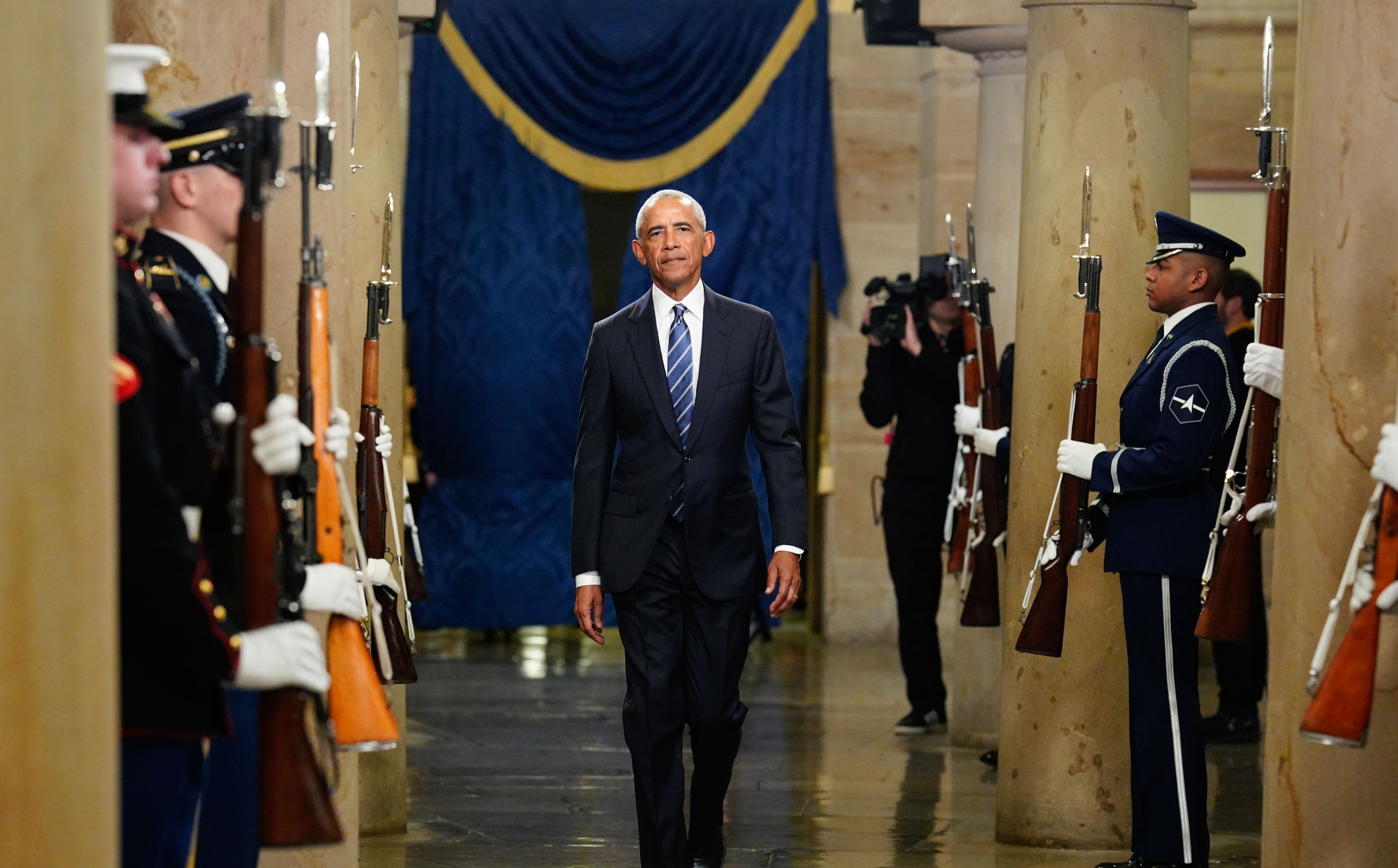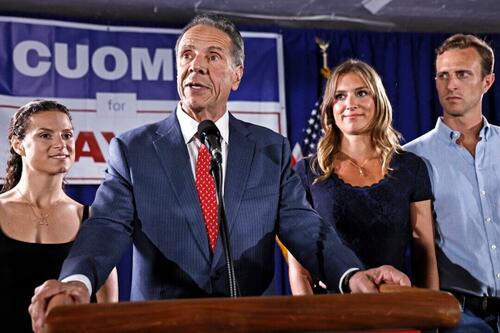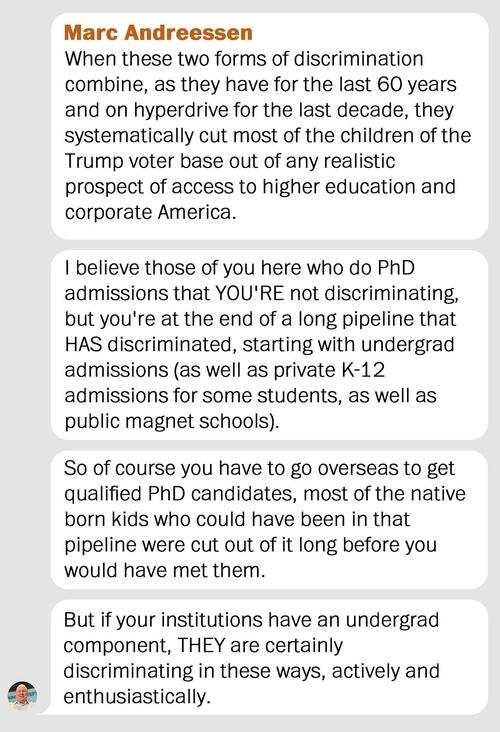The Future of the World |
Dr. Robert Malone
Dr. Robert Malone is widely known as the inventor of mRNA vaccines, research that he abandoned years ago when he discovered it couldn’t be done without the harms outweighing the benefits. But Dr. Malone is also an expert on politics and the deep state, having worked for the U.S. government for many years.
He is also the author of two very important books: his 2022 book Lies My Government Told Me and the Better Future Coming, and PsyWar: Enforcing the New World Order, released earlier this month and co-authored with his wife Jill, who holds a doctorate in public policy and has experience in infectious disease and gene therapy research.
I invited Dr. Malone to this interview in response to a recent Substack article he wrote on the re-election of globalist Ursula von der Leyen as president of the EU, but the discussion evolved into much more. Here, according to Dr. Malone, is nothing less than the future of the world.
Autogenerated Transcript (0:00 - 1:06) Dr. Robert Malone is widely known as the inventor of mRNA vaccines, research that he abandoned years ago when he discovered it couldn't be done without the harms outweighing the benefits. But Dr. Malone is also an expert on politics and the deep state, having worked for the U.S. government for many years. He is also the author of two very important books: his 2022 book Lies My Government Told Me and the Better Future Coming, and PsyWar: Enforcing the New World Order, released earlier this month and co-authored with his wife Jill, who holds a doctorate in public policy and has experience in infectious disease and gene therapy research. I invited Dr. Malone to this interview in response to a recent Substack article he wrote on the re-election of globalist Ursula von der Leyen as president of the EU, but the discussion evolved into much more. Here, according to Dr. Malone, is nothing less than the future of the world. (1:13 - 1:18) Dr. Malone, welcome back to the show. Thanks so much for having me on. Glad to be here. (1:19 - 13:57) Well, I still haven't read your new book, Psywar. I'm really looking forward to it. I contacted you recently for this interview because you wrote this excellent article on the re-election of Ursula von der Leyen of the EU. I was shocked myself when the EU moved to the right in the last election. I predicted there was no way she was going to get re-elected, but she did. And it's very significant. A lot of people seem to, especially in North America, we get very insular and we just look at what's happening here and we don't understand how important the whole global picture is. So your ideas on the re-election of von der Leyen, what it means for the EU, what it means for the globalist agenda. Right. A lot of this has been influenced by discussions I've had with people from different regions of Europe that are of the center-right populist movements in Italy, France, and UK, and of course in Germany with the Allianz for Deutschland. What we see here, how I interpret this and how many seem to be interpreting this from the center-right populist movements is really a power play by von der Leyen and those that she represents. And that alliance includes, of course, Angela Merkel, who was her mentor, but goes far beyond that. She has family ties that go deep into historical Europe and the aristocracy and the complex of individuals that have some national socialist ties and have long been involved in managing European politics at arm's length in a way that's kind of surreptitious. So she represents entrenched interests, European interests, that are longstanding and has been a chief advocate for the Ukrainian conflict, has been implicated in the — how do I put this gently? — unilateral decision-making about large-scale acquisition of the Pfizer mRNA products and the forced distribution and implementation across Europe, the advancement of the vaccine passport agenda, green cards that's referred to often, and the attempts to force non-compliance EU states to implement policies that will mandate vaccine uptake in their populations. I'm very influenced in my understanding of the European Union and particularly the European Council by time spent with Christine Anderson, who is a notable opponent, a resister in the European Union representing the Alliance for Deutschland in Germany, which is a political party that's been itself characterized, like all of the center-right parties across the world, characterized as, quote, far-right and often considered to be fascist by corporate media. This is kind of the standard trope. And, of course, one that is, again, being trotted out and deployed in the context of Donald Trump and the MAGA movement here in the United States that's about to come to a head. So what Christine educated me on, had no awareness prior to that, was that although the European Parliament is elected and it has representatives which are elected by European nation-state, neither the European Parliament nor the individual legislatures of each nation-state that comprise the European Union have ultimate authority. That authority to set policy and approve legislation or other initiatives rests entirely with the European Council. The European Council is not elected, it's appointed. So although you have elected representatives in the European Parliament, it's largely a facade. They collect nice salaries, they get drivers, they get fancy offices, they get budgets to spend, and that's about it. They can pontificate and hold meetings and hold testimony or do whatever they want to do, but functionally they have no power because anything they or the legislatures of the member states may decide can be overruled by the appointed European Council. The European Council in turn appoints the president or director, which is the position that Ursula von Leyen holds and held previously. And as you point out, there was a strong effort to hold her accountable for the unilateral decision to acquire large numbers of vaccine doses from Pfizer. There's some question about whether she has a conflict of interest consequent to her husband's involvement in the biopharmaceutical industry. But regardless, she did make this decision based on, largely it appears, back-channel text messaging with Pfizer's marketing team and their CEO, all of which messages were illegally deleted. Apparently, one infers by Ursula herself. And so she has been unable to be held accountable for those purchasing decisions on behalf of European Union and the EU budget. The structure is what I find more interesting. And of course, this was a, to get to your point, this was a power play that was not expected by some, including yourself. And to me, I was also hopeful that with this surge with Marine Le Pen, with Alliance for Deutschland, with Brothers of Italy, with Gerd Wilders, that there was this surge in European Union and the European Parliament elections, which preceded the subsequent elections that turned out to be somewhat disappointing. At the time of, for those of us that are on the center right and aligned with the populist movements, but, and there was a lot of kind of political shenanigans and dirty tricks associated with that subsequent election. I think that the electoral outcome in the voting for the European Parliament members was unexpected, unanticipated, and really set the stage for the subsequent formal elections that occurred in the various European states that occurred like a month and a half or two months after that. So one would have thought that the surge in representation from center right populist movements across Europe and the rejection of many of the policies advocated by von Leiden during her prior term would have resulted in some awareness that she, let's say, putting as generous as possible, that she represented a subset of the European Union, but that on there was a strong momentum that a candidate should be appointed to manage the European Union that represented a broader cross section of the political spectrum that was emerging and realigning in Europe. But no, it was a total power play and she was appointed to another term. And this pattern of kind of unilateral action and appointments coming out of the, not only the European Union, but also the UN, WHO, and their corporatist partners, World Economic Forum, that what's coming out of that network of growing transnational or globalist power is a willingness to act in this kind of a unilateral way and disregard populist movements and their complaints. And so really the online appointment very much aligned with what we saw come down with the World Health Organization and Tedros disregarding parliamentary rules that have been established for modification of the international health regulations and just kind of unilaterally at the last minute jamming those things through. This seems to be a pattern and that's what I had noted in the essay was that it's my thesis that, and elaborated in the book, particularly in the last sections where we do talk about the new world order, that the European Union and the dynamics of the European Union are the model for the governance structure that is attempting to be implemented and with good success by a United Nations and their allies, the World Economic Forum, and that this structure that is anticipated to be implemented as documented in agenda 2030 and now the pact for the future, that is one in which nation states, so such as Canada or the United States or Mexico or Brazil or the Eastern European states or whomever, will be subsidiary in terms of sovereignty to a global governance structure that will be appointed, which is how the United Nations currently is. So just as we have the EU as a Brussels-based organization that has consolidated power now quite explicitly under Von Leyden, she's now appointed basically her minions, her political allies, to the seats of the European Council. So remember the food chain here, she got appointed and renewed as the head of the European Union and the head of the, functionally the head of the European Council, and then she's implemented changes in the composition of the European Council that further consolidates her power unilaterally again without any electoral process. So that's the model that is anticipated for this new global government. (13:58 - 15:04) And sitting above this kind of, if you think of Brussels as the metaphor for the new world government structure, sitting above that bureaucratic administrative structure, you have these global public-private partnerships or non-governmental organizations that are setting policy agendas, goals, directives, and advising the kind of bureaucratic administrative cast on how they'll operate. So this is very much how the European Union runs now. And so that's the thesis is that really the structure of the European Union, which was implemented by the United States largely, is the planned structure for this new globalized government that is marching forward under the structure of a series of treaties, international treaties, because that's what the Pact for the Future and Agenda 2030 are, (15:05 - 20:28) that have some legal binding. The scholars arm-wrestle about how legally binding those things are, but that's how it's being interpreted is that these are being deployed in a gradualistic fashion with the objective of moving into this EU-like structure. And what you see is the current leadership of these organizations, such as the Director General of the United Nations, who is formerly head of the Socialist International and before that, head of the Socialist Party in Portugal, and grew up politically under Salazar and then the subsequent revolution against Salazar in Portugal, is generally strongly disliked by Portuguese, considered a failure during his term, but he's failed upwards and now sits at the top of the United Nations structure and is very much committed to advancing socialist ideals and agendas and policies using this kind of unilateral political power play that's very much akin to what we just saw with Ursula. So there's my version of why this matters to those of us in the rest of the world other than just the European Union, is that what we're seeing play out is not only the model for the anticipated global government structure, but that the political dynamics that are being set loose in the European Union in which one faction, the more leftist faction, the more democratic socialist we could call it, it's very much aligned with the Klaus Schwab version of stakeholder capitalism, which is very much a derivative of the governmental structure and alliance and consensus that exists within modern Germany, which is this structure in which it's very corporatist and the corporations are in partnership with the trade unions and they are all working together to advance social goals and agendas such as acting on the green energy agenda, for example, and advancing the Ukrainian conflict and the geopolitical strategy that is behind that. And in the case of Germany, I think that it's a fascinating case study because it's now becoming clear that the Germans have basically drunk their own Kool-Aid, if you'll forgive the American Jim Jones metaphor. They are poisoning themselves with their own propaganda, the propaganda about green energy, the propaganda about not using petroleum-based or coal-based energy solutions. The propaganda in particular notable is the propaganda and logic of the importance for transition to electric vehicles, which is now decimating one of their primary exports and decimating this amazing world-renowned automobile industry that they have as evidenced by the layoffs happening in Volkswagen right now. And the irony is that, in my mind, that they have bought into the green energy propaganda, they bought into the EB logic, they have conceded with Nord Stream destruction, so cut off their flow of natural gas from Russia. Now they are succumbing to the form of predatory capitalism that is practiced by the CCP and communist China. So the whole democratic-socialist-let's-all-sing-kumbaya-together logic has backfired, and their lunch is being aggressively eaten by a transformed China that has taken the capitalist model and put that veneer on the central communist party diktat, dictatorship, and turned it on the West. And it's just methodically going through and destroying staple Western industries. And that's the kind of thing that I think we can expect under this new governance structure that is proposed through United Nations and their World Economic Forum allies. (20:29 - 21:17) That was long-winded. I hope I've clarified my positions on all this. Well, actually, it was excellent, Robert, because you probably gave me half a dozen new questions in everything you've just said. You were talking about corporations and their union with the government, and I'm no political analyst, but as I understand it, that's pretty much the definition of fascism. So I'm a little curious, though, because you were talking about Volkswagen and their layoffs, and the automobile industry, and the electric vehicle market is tanking. People are not buying them. It doesn't matter what governments seem to do to try to incentivize them to do this. And so it seems to me like if that's what's going on, and I agree with you, that is what's going on. We're seeing this union of governments and corporations, or perhaps it would be better to say corporations taking over governments. (21:18 - 30:27) They seem to be working against themselves. What's your thoughts on that? So I assert this is one of the structural problems. Getting aside of the morality of governments deploying propaganda and psychological warfare against their own citizens, it has an intrinsic logic flaw, which is that it locks nation-states and their citizens into a set of current solutions, which creates a situation in which those nation-states and their cultures can't adapt to changing conditions. So they become locked into the present solutions in a changing world that's very dynamic, in which what, if anything, we need is very active discussion and dialogue between all of us in order to focus on what are the real problems and how might they be solved. This logic comes out of the theory of the structure of scientific revolutions from Thomas Kuhn, that essentially what we need are paradigm shifts. And you cannot have paradigm shifts if you don't allow outsiders to enter the discussion space, because otherwise what you just get is self-reinforcement of insider solutions that's essentially groupthink. That's the socket between structure of scientific revolutions and victims of groupthink by Irving Janus. And so what we seem to have going on here now is this logic that we have to empower psychological warfare and propaganda and censorship in order to, quote, preserve democracy, which is intrinsically a farce on its face, but widely reinforced. That's basically neurolinguistic programming, this repeated messaging that it's necessary to have censorship in order to, quote, preserve democracy. And then the likes of you and I can discuss at the fringes what is it that they mean by democracy, which seems to be basically the electorate is allowed to choose between pre-selected candidates that have already been pre-approved by the existing oligarchy and their bureaucrat servants, which we call here in the deep state. So that's where we are heading is a world in which we are not allowed to have free and open discussions, which means we cannot have creative solutions. We will not be able to allow third parties to contribute, people like Elon Musk, who are clearly disruptors, not allowing them to participate in problem solving. And we will be locked into what the Director General of the United Nations calls the best solutions. He's written point blank in his defense of the pact for the future. So the Director General of the United Nations has written that they have the best solutions, that the pact for the future and Agenda 2030 represents the best solutions. Those best solutions include the likes of environmental social governance and diversity equity inclusion programs that are all built around the logic of stakeholder capitalism. So that's their idea of best solutions. Their best solution matrix is also grounded, predicated in the thesis that if we are seeing true climate alterations, and that's arguable because it seems to very much be a question of where do you compare to. And if you want to set your comparison standard to a prior mini ice age, which is what's been done throughout the world, then it looks like we're climbing in temperature. If you look over a longer range, then it appears that we're actually in a period of relative cooling. But it doesn't matter because once these narratives get locked in and reinforced as they are being done through censorship and all of the tools of psychological warfare, then we are forced into, and the scientific community is forced into a artificial consensus that paradoxically often seems to be one that financially benefits the interests of this strange oligarchy confluence between, and here's my little tiny bone to pick with you about the nature of fascism. Fascism is corporatism, I concur, as defined by Benito Mussolini, but it is classically the fusion between corporatism and socialism from whence fascism emerges. And we explicitly have the confluence of a socialist United Nations and the underpinning socialist logic of stakeholder capitalism with the corporatism that is reflected by this trade union of the thousand largest companies in the world, which is the World Economic Forum. So we absolutely have that. And of course, the whole logic of left and right political spectrum is increasingly obsolete. But for the sake of argument, we'll call it the left or in the States, we might call it the uniparty. And perhaps that exists a little bit there in Canada. It certainly occurs in Great Britain. This conflict of interest is strangely always driven towards solutions that provide economic benefits for a certain caste. And this is the with the Green New Deal. And if you want to dispute this, I cite as example one, the policies that are referred to as green colonialism or green imperialism, in which the World Bank, here's just a one example case study. In Africa, they have abundant natural gas resources. As a matter of fact, there's been some discussion about running natural gas lines from Africa up to Europe as an alternative for Nord Stream. So abundant natural gas resources. And the World Bank has a policy that they will not provide capital, which is to say basically that Africa cannot access capital for energy project development that involves petroleum-based solutions. So they're sitting on large amount of natural gas that they cannot get capital to build the infrastructure to develop and use, and which would raise the standard of living in Africa immensely because the real problem in Africa is access to energy. Because you're not going to be able to develop your agriculture solutions, for instance, or make the desert bloom as has happened in Israel, if you can't get energy to pump and process water. Maria can't wash her clothes in a commercial, in a laundry, mechanized laundry. She's got to go down and use suboptimal water sources in creeks or carry water, et cetera, et cetera. And so they can never raise themselves up because even though they're sitting on large amounts of energy, they can't use it. And that seems to support the interests of various global third parties. And what they can do is they can take out a loan if you're one of the African nation states. You can get a loan for developing green energy and building windmills and solar farms, but you can't get capital for developing your own petroleum-based resources. And so who are you going to spend that capital with? Where are you going to get that tech? Well, you got to buy it from the very people that are controlling the allocation of the resources through the World Bank. You got to go to Europe and North America, and in particular, China, in order to purchase these things. (30:28 - 31:44) And of course, the easy solution is you take the money and you participate in the Chinese industrial development initiatives that are so gladly placed at your doorstep. And all you got to do is consent to allowing access to various natural resources or build out of other facilities that support the agenda of the CCP and the Belt Road Initiative. And that's the way the world is, right? But who wins? People that win as the same old people, the folks that control the money. And frankly, in all of this, my observation in watching, in particular, European politics play out, like Liz Truss' Getting Trust, or Giorgio Maloney's, the technical term is me loanification. Remember, she came in spitting piss and vinegar, and fire and brimstone. And within a couple of weeks, the cat was belled. (31:44 - 33:01) And the only thing that she's spoken about since are basically social justice issues, and nothing about finance because, like happened with Liz Truss, she was told by the bond market and the large financial interests that she will comply or she will be out. And that's pretty much way of the world right now. If you want to implement change, people seem to not appreciate that right now, the way things are constructed, the nature of the world right now, as far as I can tell, and the nature, looping it back to what drove the Von Leiden appointment, is the financial interests, the large financial interests in the bond market. They control the world. We don't have to go down the rabbit hole of citing this particular family or that family and their banking interests and the Bank of International Settlements. I think we can just leave it as clearly the globalized financial interests control elections, they control policy, and we just live in their world. (33:02 - 33:34) Yes. So all of this ties together, Robert, because you've talked about the political structure and where these people are being appointed. Von der Leiden, of course, I mean, technically she's elected by the parliament, but there's a lot of influence there. So she becomes a president of the EU, she gets a very influential seat on the council, and yeah, she's appointed. And here in Canada, this is certainly a problem that we understand the great risk to democracy. We have appointed senators, appointed judges, appointed police chiefs, and who do they get appointed by? They get appointed by the people who are in power. (33:35 - 34:18) And the people who are in power have been put into power intentionally, largely by the WEF, and the WEF actually brags about it. Right, exactly. And they come right up, Klaus Schwab came right up and said that about Canada and how he owns half of Trudeau's cabinet. So we've got that aspect of it where it's kind of an old boys club or girls club, whatever, people get in there and then they bring in more of their people. Then you talked about Africa and accessing the resources, and some people would look at that and say, well, it's just a way to keep Africa poor, but no, that's not what it's about. It's about controlling the resources. So now they've got this club and they control all the resources and that's power. And as you said, you can't get outside influence because they won't let any outsiders in.
